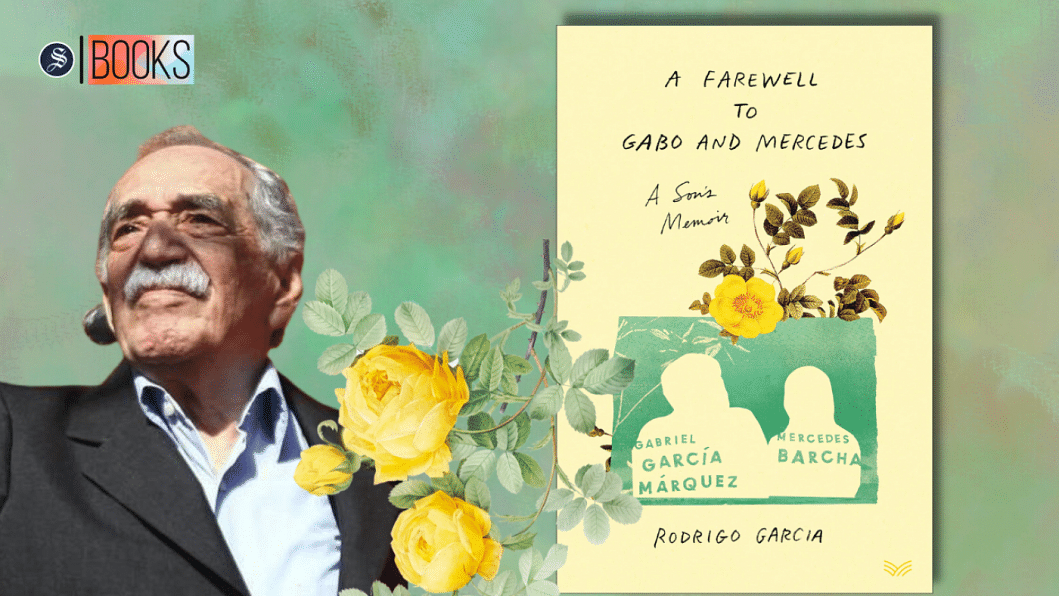Thus, we bid goodbye to Gabo and Mercedes

Gabriel Garcia Marquez once famously said, "All human beings have three lives: public, private, and secret."
Although we are quite familiar with the author's much celebrated public life, A Farewell to Gabo and Mercedes (HarperCollins, 2021) is a memoir by his son, Rodrigo, that offers us an intimate look into Garcia's "private" life. When Rodrigo received a call from his mother in March 2014, that his father had been in bed with a cold for two days, he didn't think it was unusual. But he was alarmed by Mercedes' prognosis. "This time it's different".
And so Rodrigo Garcia, a prominent director, then took up the tricky task of recording the events as they unfolded while balancing between the "private" and "public" as the narrator. On one hand, he was witnessing his beloved father's last days, and on the other he had the daunting task of writing about one of the greatest writers of all time.
The book is barely 120 pages; a two hour read at most. The chapters aren't long or stretched out. The honest detailing is what makes this book beautiful. The sincere language lends the memoir brevity that makes it difficult for me to review it. No one else could have written this book better than Garcia's son.
Garcia, called lovingly Gabo by his family, has a timeless legacy to his name. The Colombian writer is a much celebrated public figure in his country and worldwide since winning the Nobel Prize in Literature 1982. Despite all that success, Gabo managed to maintain a light-hearted and humble persona throughout his life. This memoir paints a picture of exactly that with its intimate account.
It comprises only five chapters. Each starts with an epigraph that quotes Gabo's most famous works—One Hundred Years of Solitude, The General in his Labyrinth, Love in the Time of Cholera—as a way of paying tribute to the author's legacy. As you near the end of the book and read about life slowly ebbing away from Gabo, each of the epigraphs serve as a stark reminder of his timeless and eternal legacy.
One beautiful aspect that no one can take away from this book is the account of a writer's relationship with writing during his last days. "Memory is my tool and my raw material. I cannot work without it", Gabo pleads. As he battles with dementia, we see how it affects his grip on memory and reality, a writer's most treasured possessions. His son realizes the most brutal thing to happen to a writer is this. But the brilliance of Gabo shines even in these last days. Despite all the health struggles, he's joking with the nurses, listening to vallenatos—his favorite form of music—and playfully cursing "jerk" in his native language.
After Gabo's death, Rodrigo shares their struggle as a family coping with the grief. "My mother hasn't returned to the study (Garcia's study) and never will", he writes.
In 2020, Mercedes too passed away after her lungs gave up from years of heavy smoking. She was a resilient figure. When Gabo was working on One Hundred Years of Solitude, she took up the mantle of family affairs so Gabo could work on the book without any distractions. Later, when they needed money to send that manuscript to a publication, she pawned off the last of her things—a heater, hair dryer and blender—to send the draft to the publishers.
After both his parents' passing, Rodrigo shares his grief that'll resonate with anyone who has lost a loved one. "The death of the second parents is like looking through a telescope one night and no longer finding a planet that has always been there. It has vanished, with its religion, its customs, its own peculiar habits and rituals, big and small. The echo remains", he writes.
"My father complained that one of the things he hated the most about death was that it would be the only aspect of his life he wouldn't be able to write about", Rodrigo writes in a later section. "Everything he lived through, witnessed, and thought was in his books, fictionalized or ciphered."
With this emotional memoir, a son shares his father and mother with the world in a way no one else could have done.
Usraat Fahmidah is a freelance journalist and writer. You can reach her on twitter @usraatfahmidah.

 For all latest news, follow The Daily Star's Google News channel.
For all latest news, follow The Daily Star's Google News channel. 









Comments